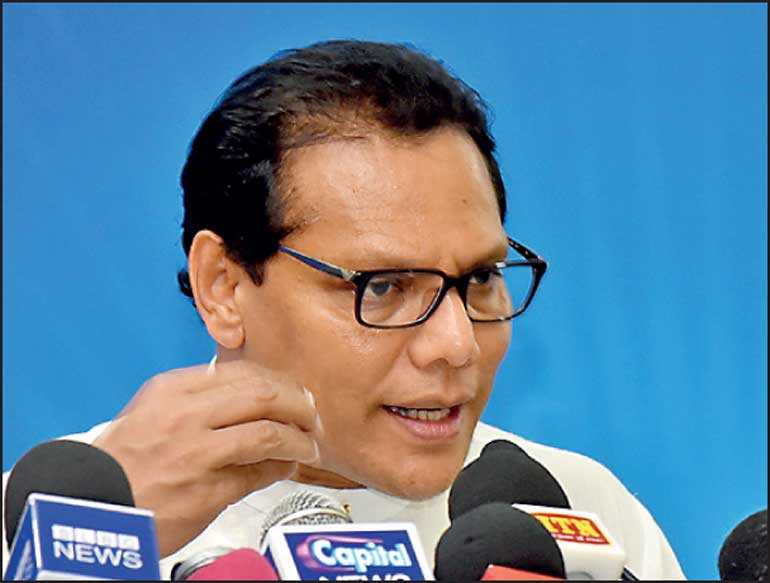Tuesday Feb 17, 2026
Tuesday Feb 17, 2026
Wednesday, 10 July 2019 00:00 - - {{hitsCtrl.values.hits}}

Sri Lanka Freedom Party (SLFP) General Secretary Dayasiri Jayasekera yesterday faulted the United National Party (UNP) for failing to include changes suggested by President Maithripala Sirisena in the State Land (Special Provisions) Bill before gazetting the document.
Jayasekera, talking to reporters at the SLFP headquarters, emphasised that the proposed Land Bill had many questionable provisions, which eroded previous safeguards to ensure that arable land was protected from commercialisation. He argued that several recommendations made by President Sirisena to maintain existing inheritance laws, prevent the break-up of large tracts of land, and ensure that the Mahaweli project is exempt from being covered by the new regulations, were not included in the document that was moved before Parliament.
“There are clearly issues of due process here. The law states that when changes are recommended, they have to be included in the proposed legislation, and presented to Cabinet for a second time before it can be presented to Parliament. These regulations are in place to increase transparency and protect public interest. They give the public enough time to go before the Supreme Court and see whether the legislation is against the Constitution. But that has not happened here,” he said.
In addition to overlooking the President’s recommendations, the SLFP General Secretary questioned why the Government has linked the State Land Bill to the $480 million grant from the Millennium Challenge Corporation, which will provide funding to measure land to establish a land bank in Sri Lanka, and also set up the Colombo-Trincomalee economic corridor.
“Why did the Government ask for funds from the MCC? Why are they working on this with a US entity? All this raises many questions. If the Government wants to have a central place where all land details are recorded, why ask it to be funded by a foreign organisation? Why can’t the Government do it with local funds? As an island, Sri Lanka has limited land resources and therefore these things need to be done very carefully. A similar piece of legislation was presented by the UNP Government in 2003, and at the time the Supreme Court said a two-thirds majority in Parliament was needed, along with a referendum. That is how serious this is.”
Jayasekera also criticised Power and Energy Minister Ravi Karunanayake for attempting to give coal transportation to Norochcholai to the privately owned Lanka Coal Company, which he said would cause a loss of Rs. 1.7 billion to the State-run Sri Lanka Shipping Corporation. The latter had purchased two boats to transport coal by sea to Norochcholai, but Jayasekera alleged that Karunanayake, in attempting to give the function to a private company, could push the Shipping Corporation into making losses.